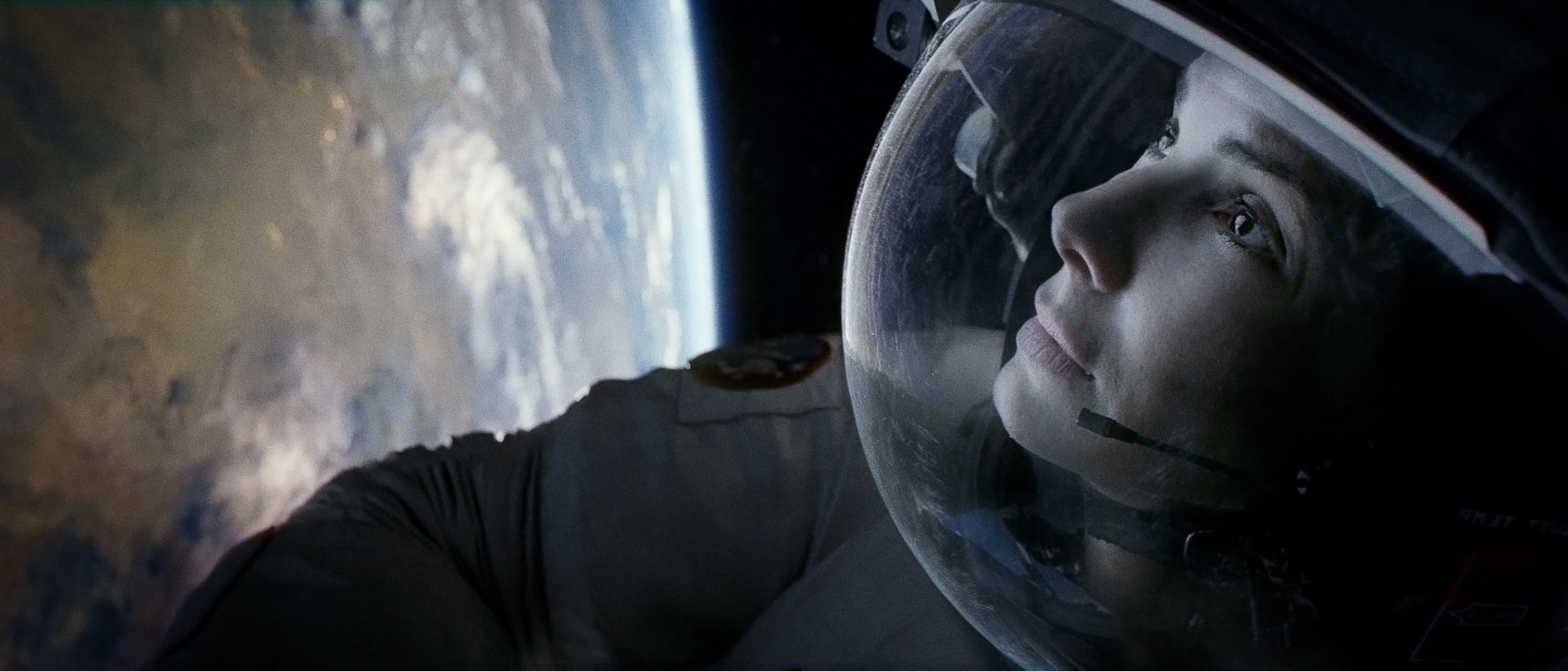Eric Henderson
|
 |
Jonathon Sharp
|
|
 |
|
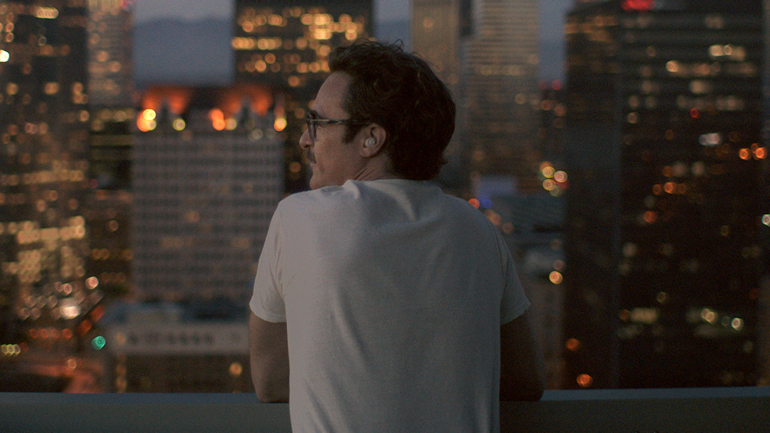 |
 |
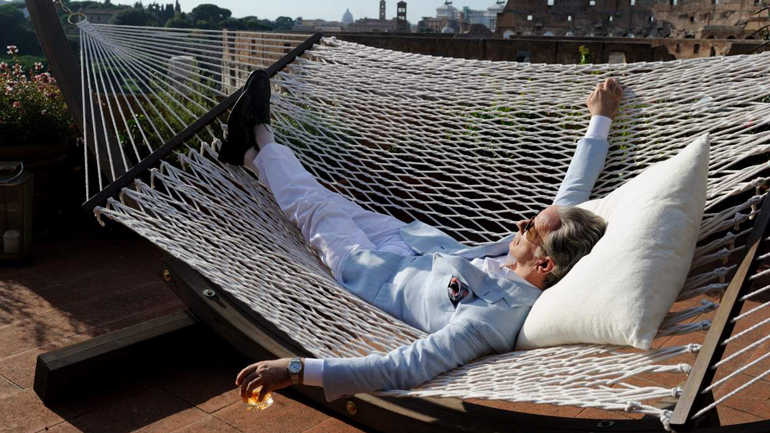 |
|
 |
|
01. Her
(Spike Jonze; USA)
Not merely the most emotionally generous and alertly conscious movie of the year, Spike Jonze's faintly futuristic love story is also one of the most understatedly gorgeous. Joaquin Phoenix practically implodes as an achingly mild-mannered writer of "personalized" letters for those who have neither the time nor the interest to do so themselves. While doing everything in his power to avoid finalizing his divorce, he finds himself becoming infatuated with his highly sentient operating system, Samantha (voiced delicately by Scarlett Johansson). Far from dystopian, Her manages the seemingly impossible task of gleaning genuine optimism from humankind's interactions with technology. To Jonze, our devices of communication, which even the most plugged-in among us undoubtedly feel closed in by, have the power to actually refine and elevate our interpersonal potential if we only let them. All evolutionary steps come with their own set of disorienting complications, but the magic of Her is that even when it owns up to its scenario's own pitfalls, it retains its belief in the viability of constant redefinition. (Her opens in the Twin Cities on Jan. 10.) |
 |
01. The Great Beauty
(Paolo Sorrentino; Italy)
Pretty much from its first shot -- a burst of cannon fire -- The Great Beauty had me. And 45 minutes later, I was still awestruck. What rapture I felt watching Fellini in high school was alive again here, only now the colors were more vivid and the sounds more engrossing. Rome, that city so in love with its past, is introduced to us in a rush of lyrical camerawork: it's all sexy and sophisticated yet tired, struggling to live up to its former glory. We follow an aging celebrity journalist around this exotic cityscape and watch as his swan song begins. As it goes, we grow ever more aware of his life's regrets: his failing to write a second novel, his letting his first love slip away. Director Paolo Sorrentino matches high sentiment with high style, and wraps it all in an imaginative framework where anything seems possible. The ceiling can turn into the sea; a giraffe may appear out of nowhere. Life, The Great Beauty shows, is disappointing but generous. Love and inspiration could be just a night away, even if death looms over everything. But then again, in the end, all roads lead to Rome. |
|
 |
|
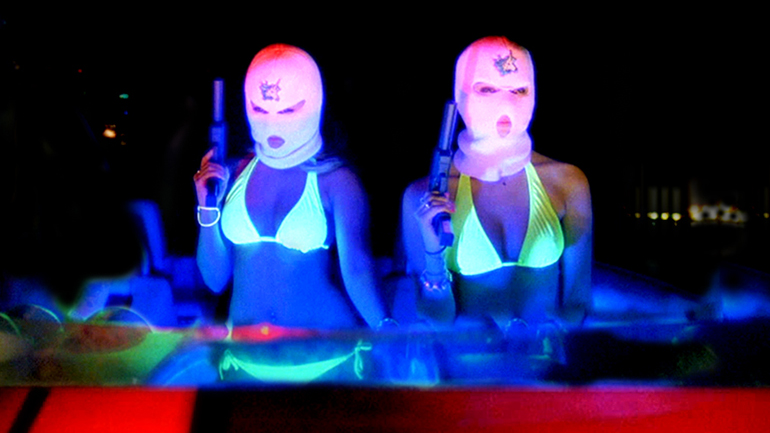 |
 |
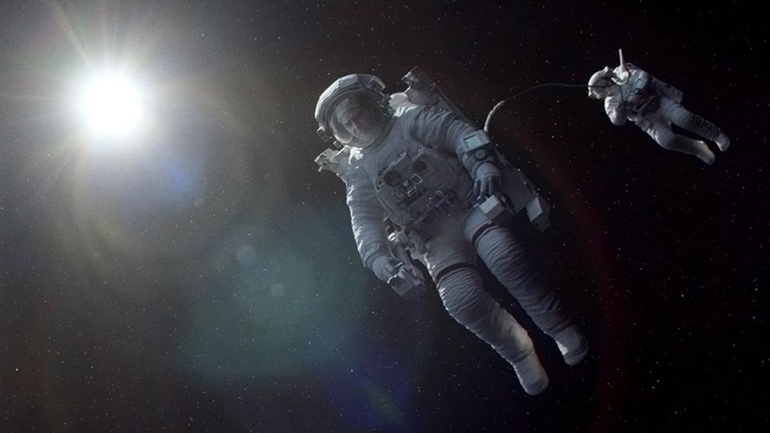 |
|
 |
|
02. Spring Breakers
(Harmony Korine; USA)
The maxim "that which does not kill us only makes us stronger" must not apply to STDs. Because Harmony Korine's latest movie was an infection that I'm still trying to rectify with many of my skeptical cinephile counterparts. I remember a music critic once praising Bernard Herrmann's score for Taxi Driver by noting that it successfully managed to bridge the gap "between elegance and sleaze," a paradox Korine's sun-kissed case of syphilis plunges into deeply, making the Trash Humpers auteur's latest -- in which he positioned Disney starlets in bikinis and high tops against James Franco's entirely Brechtian antics as a Riff Raff-inspired MC and drug dealer and had them compete for the top obscenity prize -- his most high-profile cherry bomb to date, and hence his most subversive. Don't let the sun go down on me, indeed. |
 |
02. Gravity
(Alfonso Cuarón; USA)
Gravity is more than just a survival story set in space. It's a ride into loneliness, the nightmare of our always-on, always-connected age. Sandra Bullock carries the film on her face, even as blossoms of exploding spacecraft fling her into infinity. It's a spectacle, to be sure. At times, it even resembles what a future first-person video game might look like. However, the real heart of the film doesn't have explosions or satellite debris moving at bullet velocity. Instead, we see Bullock in a stalled escape pod, crying in the face of what seems to be certain death. Tears float as she howls with a stranger's dog on the radio -- the only thing connecting her to Earth below. The moment articulates perfectly our need to connect with life on this blue, cloudy planet. After all, what good is life if there's nothing to share? |
|
 |
|
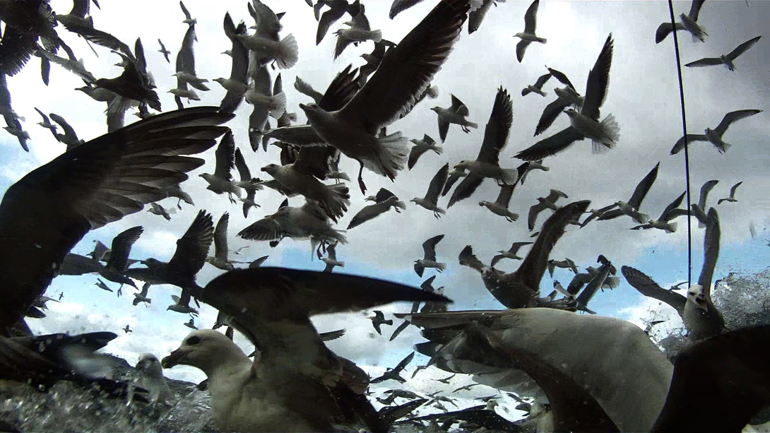 |
 |
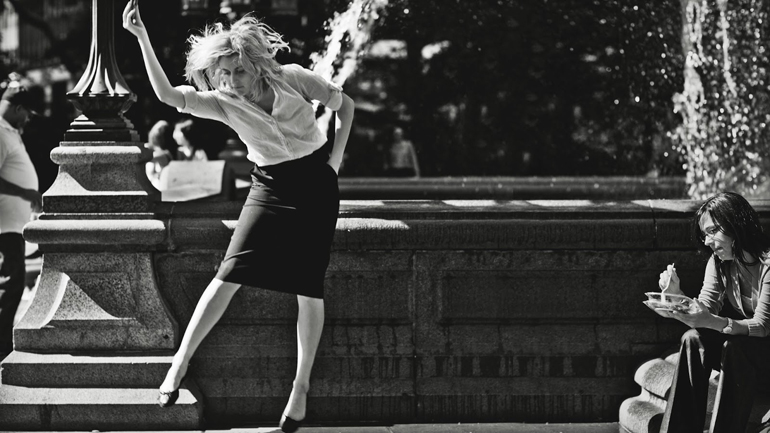 |
|
 |
|
03. Leviathan
(Lucien Castaing-Taylor & Véréna Paravel; USA)
Still waters run deep, unless an arsenal of GoPro cameras are affixed to the elements as in Leviathan. It's not that often I get to say that my favorite documentary of the year was also my favorite horror movie, but indeed, Leviathan's otherworldly images -- which turn the activities of a fishing trawler into what seems like a curtain call for Cthulhu -- are burnished with an overwhelming sense of mounting dread, followed by the even more unnerving mundane serenity at the center of it all. What's scarier than contemplating that the eye of the hurricane could just as easily be God's yawn? |
 |
03. Frances Ha
(Noah Baumbach; USA)
If you're in your mid 20s and you haven't seen this, put it in your Netflix queue now. Really. The Noah Baumbach + Greta Gerwig combo is just the indie antidote for anyone sick of super hero melodramas and CGI spectacles. In black and white, the film follows 27-year-old Francis (Gerwig) as she tries to keep up with the changes in her life. Her dream of being a dancer isn't quite working out, she's "undatable", and her best friend now lives in Japan. But Francis is no downer, or at least she doesn't show it. She takes to challenges in her own type of stride -- in one scene she literally leaps and twirls through busy NYC streets -- and wins your heart while doing it. Pragmatism never looked so good. |
|
 |
|
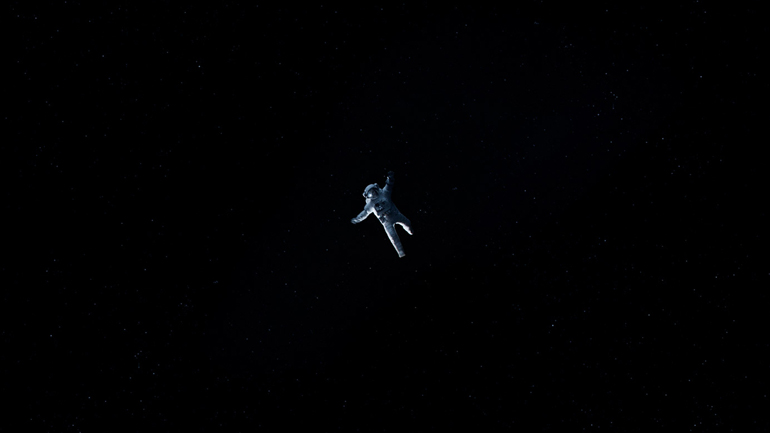 |
 |
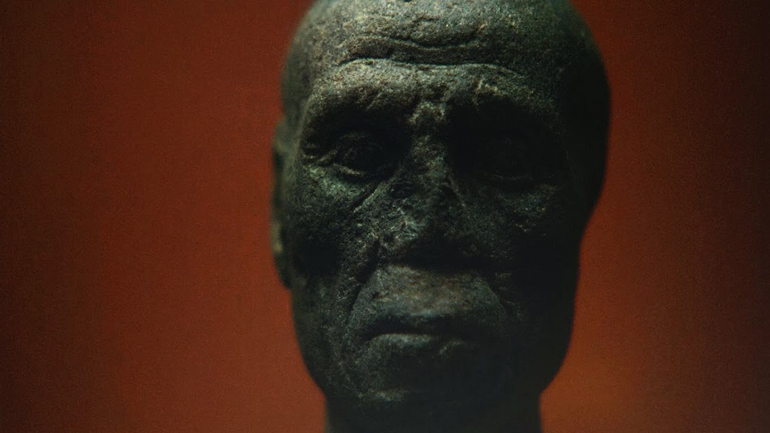 |
|
 |
|
04. Gravity
(Alfonso Cuarón; USA)
God likely isn't in the details in Alfonso Cuarón's triumphantly thrilling Gravity. In fact, his stripped-to-the-bone scenario's lack of details on the whole (which is to say, the sort of extemporaneous padding that so often clogs test-marketed Hollywood product, such as incidental plotlines, fussy character arcs, comic relief, attention deficit disorder editing patterns) marks it as one of the most paradoxical of all cineplex beasts: a genuinely existential spectacle. Naysayers clutching at straws made hay out of shuttle-wrecked Sandra Bullock's cloud of grief. And, no, the film doesn't exactly operate on the lofty metaphysical levels of 2001: A Space Odyssey. But in its own highly focused manner and on its own CGI-demo reel terms, it's nearly as mythic an achievement. |
 |
04. Museum Hours
(Jem Cohen; Austria/USA)
Toward the end of Museum Hours, an art expert tells us that the painter Brueghel documented the lives of his era's common people, but made a point not to sentimentalize them. Director Jem Cohen makes the same point. When a woman flies to Vienna to see a dying relative, she finds herself lost and lonely in the city. The only help she finds is in a museum guard, who gives her a day pass. Surrounded by art, the two just talk, somewhat awkwardly, and eventually a friendship takes shape. The lack of a traditional plot brings the risk of boredom, but Cohen pulls off some wonderful editing tricks that thrust you into questions about how art reflects life, and vice versa. And for being an art film about art, the film's central theme -- that the lives of ordinary people are worth depicting -- isn't at all pretentious. |
|
 |
|
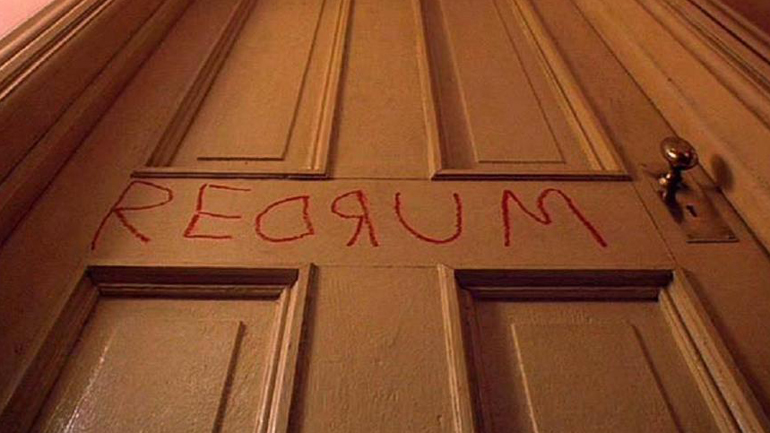 |
 |
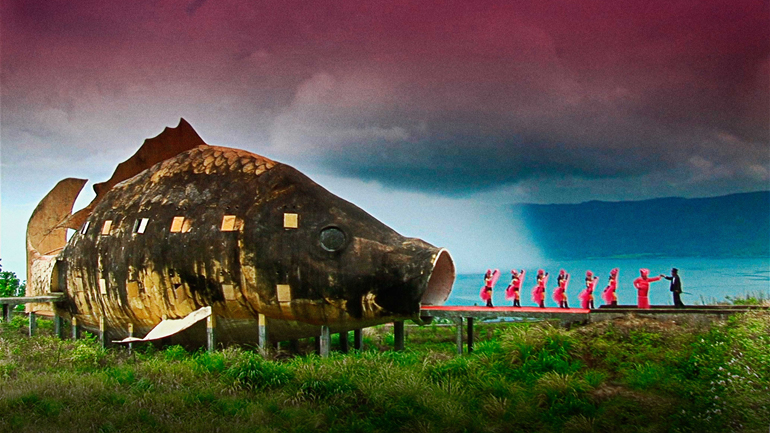 |
|
 |
|
05. Room 237
(Rodney Ascher; USA)
Though it's pure uncut cinephila, you could hardly call Room 237 a movie critic's movie, since one of the underlying themes of Rodney Ascher's compulsively watchable presentation of the myriad theories haplessly attempting to close off The Shining (one of Stanley Kubrick's most open-ended puzzle boxes) is that interpretation often yields countless dead ends just like the ones that trapped Jack Nicholson in that frozen hedge maze. But even though many of the espoused theories are barely Film School 101, Ascher's movie insists that the outcome of the analysis doesn't count half as much as the level of engagement Kubrick's film clearly inspires. To paraphrase from Foucault by way of Magritte, this is not a redrum. |
 |
05. The Act of Killing
(Joshua Oppenheimer, Christine Cynn, and "Anonymous"; UK/Norway/Denmark)
Anwar Congo is said to have killed 1,000 people in the Indonesian genocide, and he's the chief subject of The Act of Killing, easily the year's most unnerving documentary. Director Joshua Oppenheimer filmed dozens of men like Anwar, all who boasted on camera about being in death squads and killing communists in the 1960s. He also filmed these men reenacting the killings, playing themselves and their victims in various genre styles, from the musical to the gangster flick. The result is a surreal and terrifying look into a tragedy's aftermath -- one where we hear the killers' side of the story, and how they justify genocide to themselves. This film took about eight years to make, and I'm so glad Oppenheimer and company were brave enough to do it. |
|
 |
|
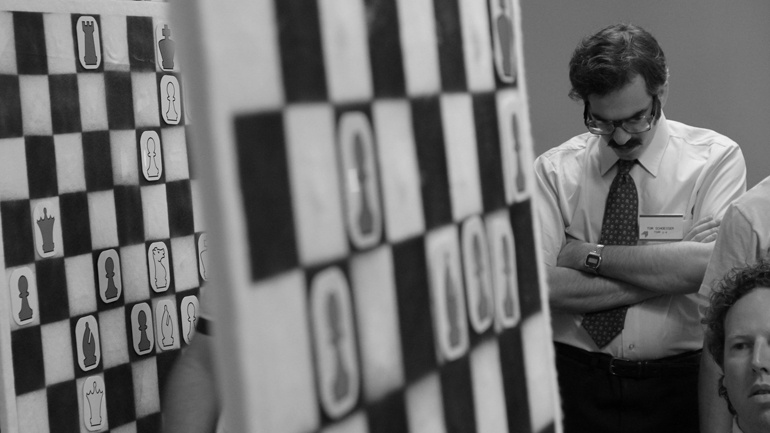 |
 |
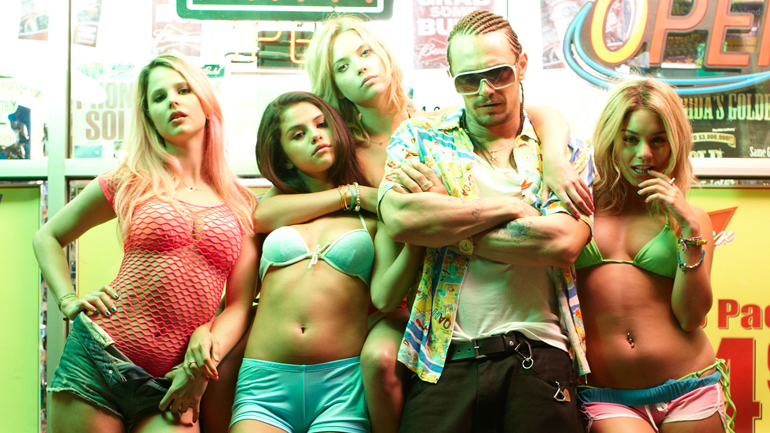 |
|
 |
|
06. Computer Chess
(Andrew Bujalski; USA)
The most understated, insistent comedy-not-comedy of the year exists somewhere within the spectrum of social ineptitude, technological emulation, and retro observations so funky you can practically smell the Shakey's Pizza reheating in these geeks' "science ovens" (as Jennifer Lawrence memorably put it in American Hustle). Mumblecore kingpin Andrew Bujalski's poker-faced, sci-fi tinged cult classic in waiting recreates with striking verisimilitude the burgeoning proto-hacker subculture, and serves it with both a smirk and a sense of respect. It all culminates in a devastatingly pointed final shot which shows, no matter how advanced we design our artificial intelligence, mankind's pleasure principle will always outpace all else. Call it "Her on Betamax." |
 |
06. Spring Breakers
(Harmony Korine; USA)
I wasn't exactly crazy about Spring Breakers. My expectations going in were Himalayan, and I left the theater a little more than slightly disappointed. I love Harmony Korine's Julien Donkey-Boy, and Gummo had a punch-to-the-gut impact on me. I expected the same power here. And while I wasn't exactly blown away, there was still that one moment ... that brilliant moment where gangster-rapper Alien (James Franco) plays Brittany Spears on piano while former Disney stars pirouette in neon bikinis and ski masks, lifting automatic weapons. The grandiose absurdity of that entire situation just needs to be mentioned in any movie-related list regarding 2013. |
|
 |
|
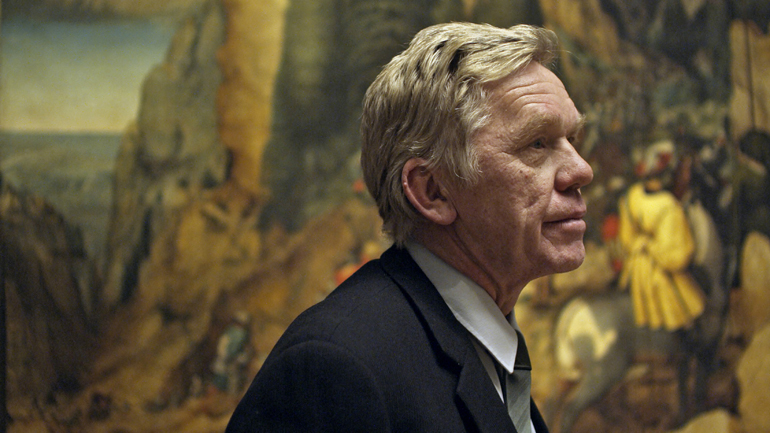 |
 |
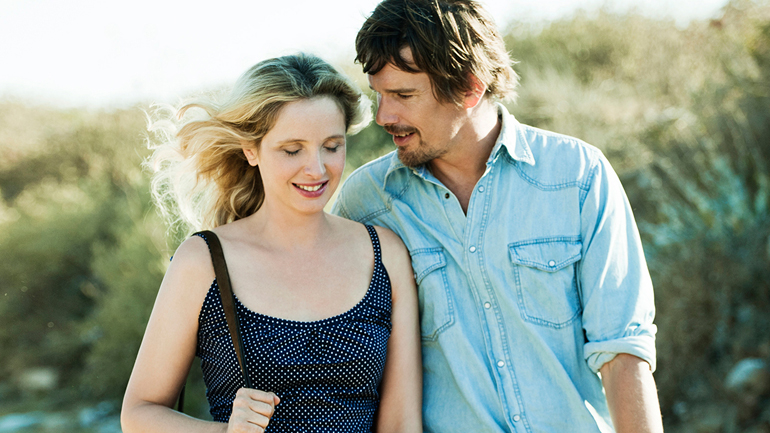 |
|
 |
|
07. Museum Hours
(Jem Cohen; Austria/USA)
If Room 237 spends its entire running time speculating on whether there can ever possibly be any completely right interpretations of complex art, the mysteriously affecting sequence at the center of Jem Cohen's Museum Hours in which a guide walks tourists through the Brueghel Room at Vienna's Kunsthistorisches Museum and gently but firmly deals with one particularly literal-minded patron suggests there can certainly be wrong ones. It's a harsh message, to be sure, but one delivered by Cohen in the same dulcet tones as that eternally patient museum guide. |
 |
07. Before Midnight
(Richard Linklater; USA)
This was the third installment of the Before series, and Jesse (Ethan Hawke) and Celine (Julie Delpy) are nearly 20 years out of puppy love. When we first met them in 1995, they all but fell in love in a night, just walking and talking around Vienna. Nine years after that, they reconnected for a stroll in Paris. This year, Jesse and Celine journeyed through Greece with their twin girls, but things weren't quite right. The film explores how love changes over time, bringing a startling uncertainty to a romance I've cherished since my teens. I can't help but wonder if there'll be another Before movie nine years from now. |
|
 |
|
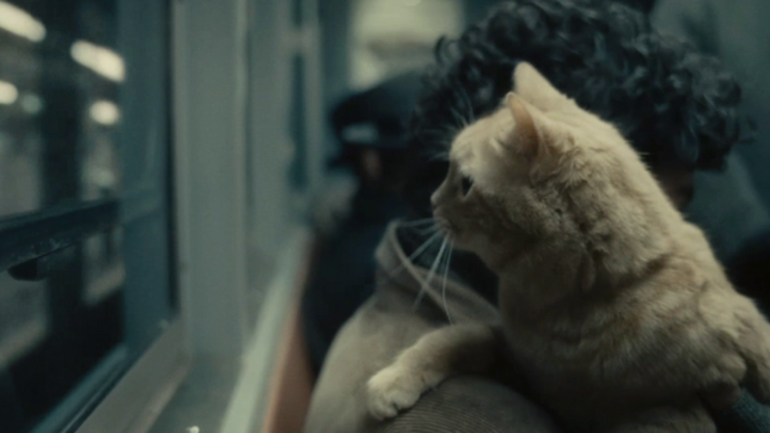 |
 |
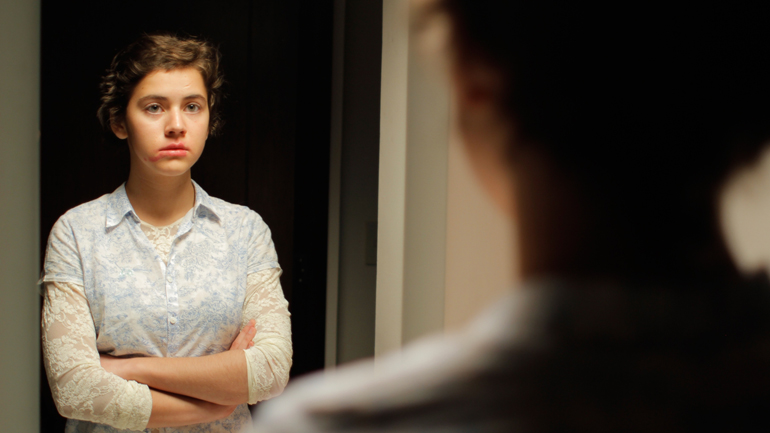 |
|
 |
|
08. Inside Llewyn Davis
(Ethan & Joel Coen; USA)
"Please Mr. Kennedy (UH-oh!), I don't wanna go into outer space! Please Mr. Kennedy (UH-oh!), please don't shoot me into outer ... outer P-P-P-Please!" The first time I watched Ethan and Joel Coen's latest — accurately tagged by them as an Odyssey tale about a man who goes nowhere — I shelved it as one of their second-tier efforts, a period piece blessed predominately with the good sense to consign setting to the back-burner. The second time I watched it, my awareness of its rhythms helped it emerge as something entirely different than its sell line. Inside Llewyn Davis isn't about the folk scene in 1960s Greenwich Village. It's about the cruel, circuitous nature of depression and the roadblocks people who endure it set up for themselves. Oh, and it's fantastically funny. |
 |
08. After Lucia
(Michel Franco; Mexico)
This film surprised me so much I had to include it. After Lucia tells the story of a teenage girl who moves to a new city with her father following the death of her mother. There, she becomes the target of heinous bullying after a sex tape leaks out. The girl suffers constantly, but fails to tell anyone about it, so as not to make life harder for her still-grieving father. Tragedy follows tragedy, and the camera never flinches. You get the feeling that the cruelty of children is infinite, and it's infuriating. Fictional films hardly ever make me so mad, but this one did. |
|
 |
|
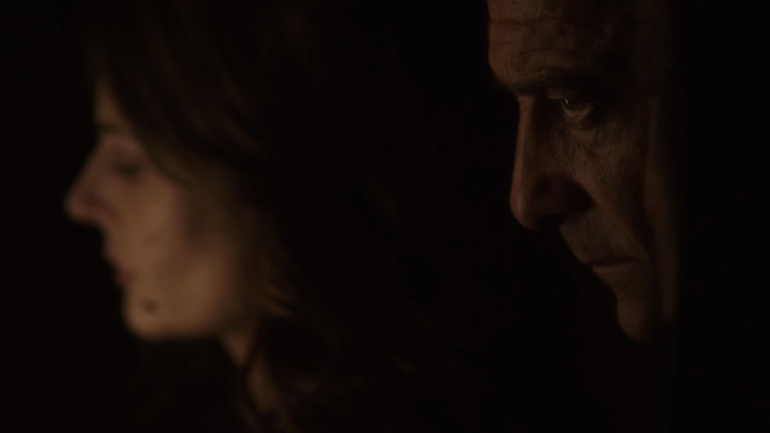 |
 |
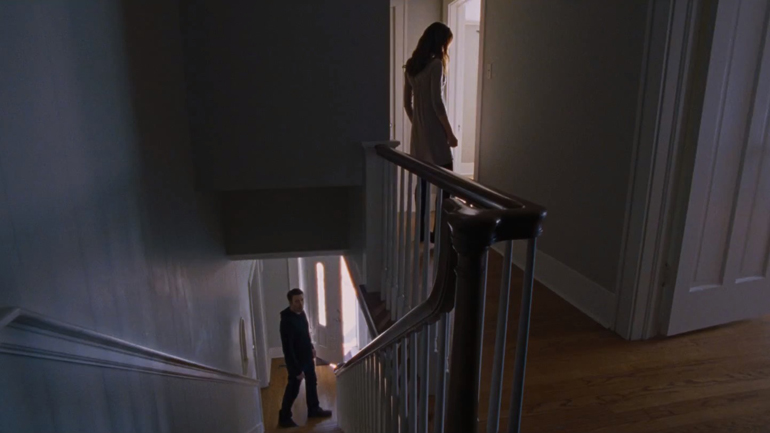 |
|
 |
|
09. Bastards
(Claire Denis; France)
Legendary French director Claire Denis gets down and dirty in this grim, elliptical tale of two families torn apart at the seams by a secret they mutually share. Given Denis's knack for abstruse cinematic intuition, it comes off like a bit like The Intruder, only the version you have to smuggle home in a brown paper sack. The film's horrible truths never need be spoken, as Denis masterfully orchestrates an atmosphere of sexual guilt and nihilistic resignation with Agnès Godard's muted images and the Tindersticks' dour musical score. An omniscient film about obsessive desires, Bastards is an adult nightmare with one of the bleakest endings in recent memory. |
 |
09. To the Wonder
(Terrence Malick; USA)
Terrence Malick's latest is a love story wrapped around a prayer. The romance, featuring Ben Affleck and Olga Kurylenko, starts rapturously in France but ends up in suburban Oklahoma. There, trouble arises. Specifics aren't ever known, but soon enough Affleck's character is with another woman, leaving Kurylenko's stranded. Beauty and splendor are everywhere here, but so too are sorrow and loneliness. Even at the local church, a priest (Javier Bardem) is helping the poor, but he's struggling to keep his faith. Like Before Midnight, To The Wonder is concerned about what happens after love, but for Malick the question is deeply religious. Thankfully, you don't need to a believer to feel wonder in a cathedral. |
|
 |
|
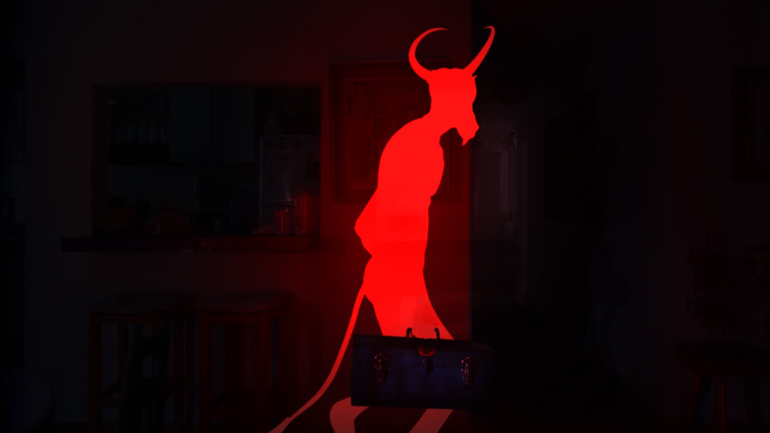 |
 |
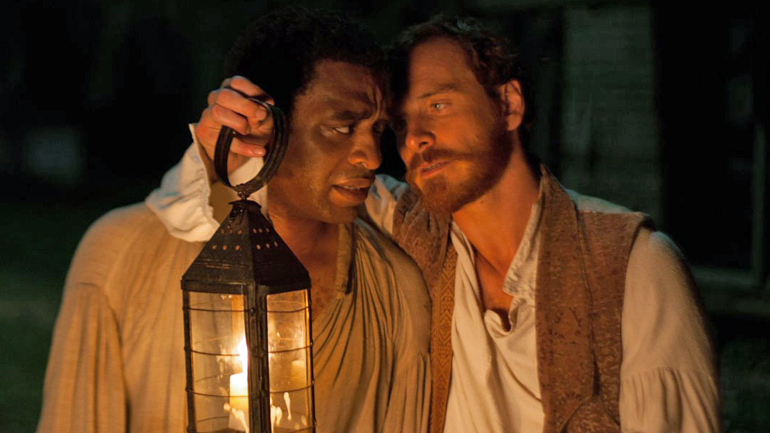 |
|
 |
|
10. Post Tenebras Lux
(Carlos Reygadas; Mexico)
Certainly there were a number of other films that likely qualified above this one for the final slot, movies that were more formally cohesive (Before Midnight, Frances Ha), movies that resonated with stronger political or private messages (A Touch of Sin, An Oversimplification of Her Beauty), movies that more overtly satisfied my sweet tooth for cult classics (The Lords of Salem), movies that left me pondering more tantalizing questions (Upstream Color), or even movies that were just more straight-up fun (The World's End). But at the end of the day, I value nothing in cinema quite as much as overweening, downright foolish ambition, and Carlos Reygadas' inscrutable but intoxicating phantasmagoria has that in spades. A loose collage of highly individual images -- some raw and physical, others strikingly dreamlike -- Post Tenebras Lux is one of the year's boldest personal artistic statements. |
 |
10. 12 Years a Slave
(Steve McQueen; UK/USA)
The institution of slavery was America's greatest sin, and British director Steve McQueen makes you feel why. And he does so without relying on gore or shock tactics. Instead, McQueen shows you what daily life might have been like on a plantation, where death, torture and rape were just part of industry, of "owning property." The film follows the true story of Solomon Northup (Chiwitel Ejiofor), a free man who's tricked and sold down the river. He's eventually freed, but the ending isn't sweet. Justice doesn't come -- not for him, and certainly not for those whose lives began and ended in captivity. In short, this is the most powerful film on slavery that I've seen. |
|
 |
|
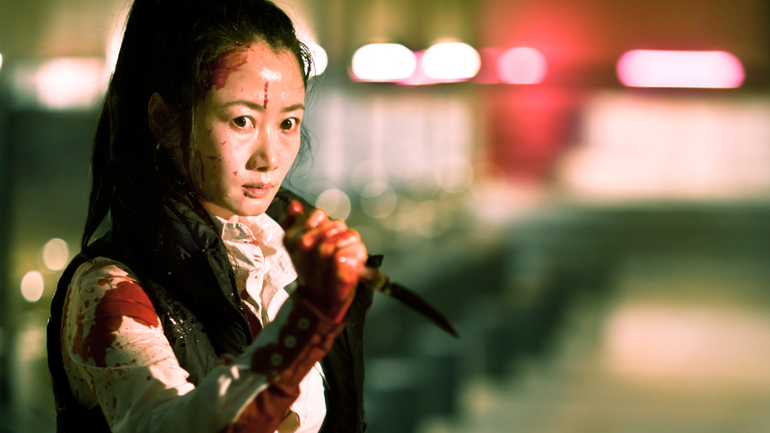 |
 |
 |
|
 |
|
Great Performances
Performances come in a variety of functions and sizes, from cinematographer Emmanuel Lubezki's indelible work in both highly digital and old school analog modes (Gravity and To the Wonder, respectively), to filmmaker Shane Carruth's dazzling blend of sound and music throughout Upstream Color. But for the sake of argument, let's stick with acting performances here. I had nothing but love for Joaquin Phoenix's aching vulnerability in Her, Sheri Moon Zombie's wilting defiance in The Lords of Salem, Sharni Vinson's fearlessness in You're Next, and John Goodman's sneering indulgences during Inside Llewyn Davis. Mass murderer Anwar Congo's "performance" in the documentary The Act of Killing is certainly among the year's most jaw-dropping, if only speciously eligible here. But no one grabbed me by the throat with quite as much intensity as Zhao Tao, crumbling under the cruelty of her situation and then fighting back with ferocity in A Touch of Sin. |
 |
 |
|
 |
|
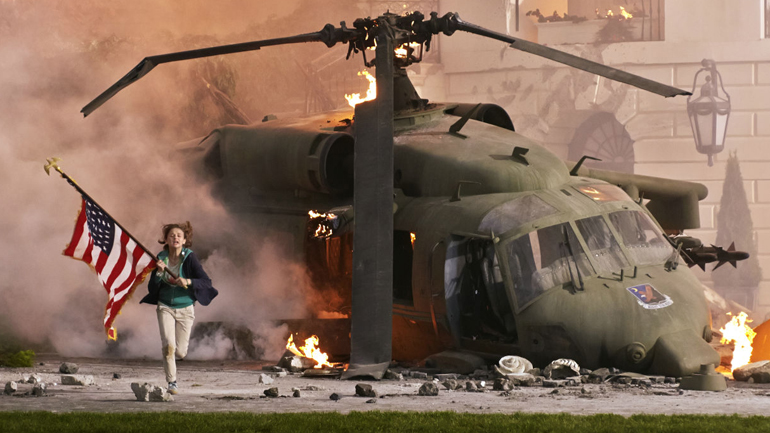 |
 |
 |
|
 |
|
Guiltiest Pleasure
The raucous creature feature Pacific Rim offered no small amount of visceral summertime thrills. The shrill August: Osage County was all kinds of illicit entertainment without ever once actually suggesting genuine human behavior. I found The Wolf of Wall Street repugnant while still recognizing Martin Scorsese likely intended it that way, but the movie is sure shaking out to be one of the year's greatest argument starters, so I have to give it up for that. And if I wasn't so attuned (if not downright married at the hip) to Brian De Palma's own specialized obsessions, I'd probably have to consider the campy, sarcastic, downright nonsensical thriller Passion for the title. But let's put the emphasis on the "guilty" part of "guilty pleasure" and once again revel in the sheer, brain-cleansing stupidity of Roland Emmerich's barn-storming White House Down, a brawny mass of cliché stars-and-stripes iconography that more than once nudges toward the Verhoeven-esque. As I said earlier this year, the movie's "bizarrely charming meta-mayhem is to call it the drag version of that speech Bill Pullman gives at the climax of Independence Day. It takes the same basic message, but blows it so far over the top that it leaves the sentiment tattered in the wind." |
 |
 |
